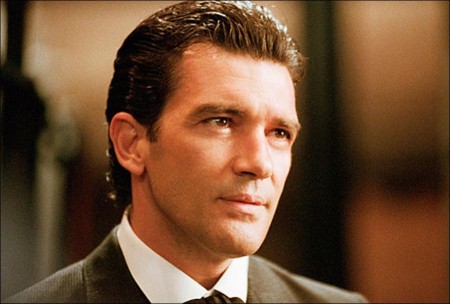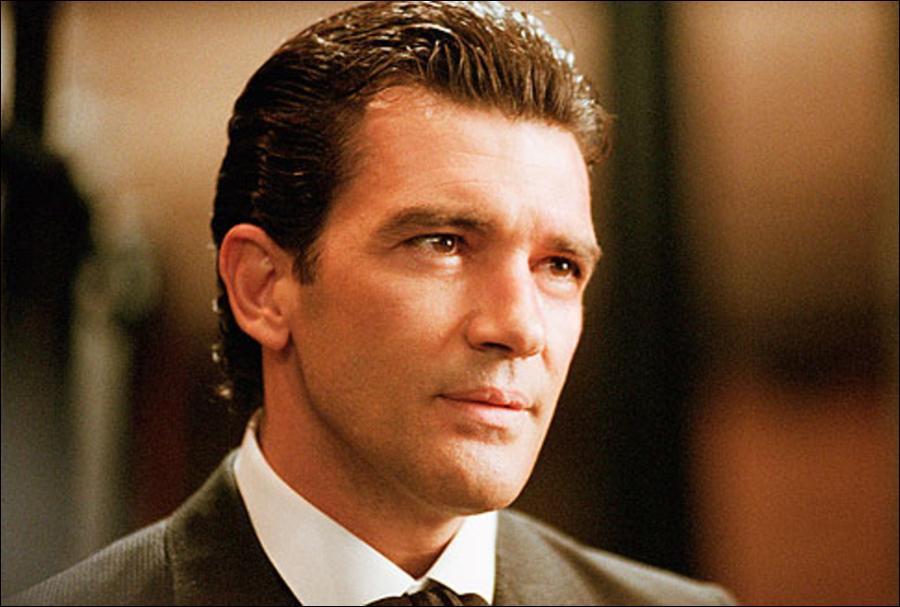Since his introduction to American cinema in the highly acclaimed “Mambo Kings,” Antonio Banderas is irrefutably one of the leading international actors of his generation. He has received critical praise for his performances in film, television and theater, as well as behind the scenes as a feature film director. In 2005, he was honored with a Star on the Hollywood Walk of Fame.
His second directorial feature is the Spanish film “El Camino De Los Ingleses” (titled “Summer Rain” in the U.S.). A coming-of-age story, the film follows the first loves, lusts and obsessions of friends on vacation at the end of the 1970s. He made his directorial debut with “Crazy in Alabama,” starring his wife, Melanie Griffith.
Banderas stole the show in the 2004 blockbuster animated film “Shrek 2” as the voice of Puss in Boots. He reprised this role in the widely anticipated sequel “Shrek the Third,” the ABC Christmas special “Shrek the Halls,” and the fourth installment of the franchise, “Shrek Forever After.”
In 2003, Banderas earned a Tony nomination for Best Actor in a Musical for his Broadway debut in the Roundabout Theater Company production of “Nine,” a musical inspired by Fellini’s “8½.” He also received a Best Actor Drama Desk Award, Outer Critics Circle Award, Drama League Award and Theatre World Award. “Nine,” directed by David Leveaux, also starred Chita Rivera.
Banderas has worked with some of Hollywood’s best directors and leading actors, including Robert Rodriquez’s “Desperado” opposite Salma Hayek and the sequel “Once Upon a Time in Mexico” opposite Johnny Depp; “Original Sin” opposite Angelina Jolie; Alan Parker’s “Evita” opposite Madonna, in which he received his first Best Actor Golden Globe nomination; Martin Campbell’s “The Mask of Zorro” opposite Catherine Zeta-Jones, in which he received his second Best Actor Golden Globe nomination, and the sequel “The Legend of Zorro”; Neil Jordan’s “Interview with a Vampire” with Tom Cruise and Brad Pitt; Jonathan Demme’s “Philadelphia” opposite Tom Hanks and Denzel Washington; Bille August’s “House of the Spirits with Meryl Streep and Glenn Close; and Brian de Palma’s “Femme Fatale.”
Other film credits include the “Take the Lead,” the “Spy Kids” trilogy, “Miami Rhapsody,” “Four Rooms,” “Assassins,” “Never Talk to Strangers,” “Two Much,” “The 13th Warrior,” “Play It to the Bone” and “Ballistic: Ecks vs. Sever.”
He was nominated for his third Best Actor Golden Globe for his performance as the infamous Pancho Villa in HBO’s 2003 release of “And Starring Pancho Villa as Himself.”
Born in Malaga, Spain, Banderas attended the School of Dramatic Arts in his hometown, and upon graduation he began his acting career, working in a small theater company based there. He later moved to Madrid and became an ensemble member of the prestigious National Theater of Spain.
In 1982, Banderas was cast by writer/director Pedro Almodovar in “Labyrinth of Passion.” It was the first of five films Banderas would do with Almodovar, the others being “Matador,” “Law of Desire,” “Women on the Verge of a Nervous Breakdown” and “Tie Me Up! Tie Me Down!” The international success of these films introduced to him to Hollywood. Banderas most recently appeared in “La Piel Que Habito” (“The Skin That I Inhabit”), written and directed by Almodovar – reuniting with him after 21 years.
He can most recently be seen in Woody Allen’s “You Will Meet a Tall Dark Stranger” for Sony Classics, in which he is a part of an all-star cast that includes Naomi Watts, Anthony Hopkins, Josh Brolin and Freida Pinto. He also stars in the action thriller “The Big Bang,” directed by Tony Krantz, and will appear alongside Channing Tatum and Ewan McGregor in Steven Soderbergh’s “Haywire” for Lionsgate. He recently starred with Laura Linney and Liam Neeson in “The Other Man,” directed by Richard Eyre.
This upcoming year, Banderas will appear in the upcoming film “Black Gold,” directed by Jean Jacques Annoud, opposite Freida Pinto, Mark Strong and Tahar Rahim.
Views: 254





